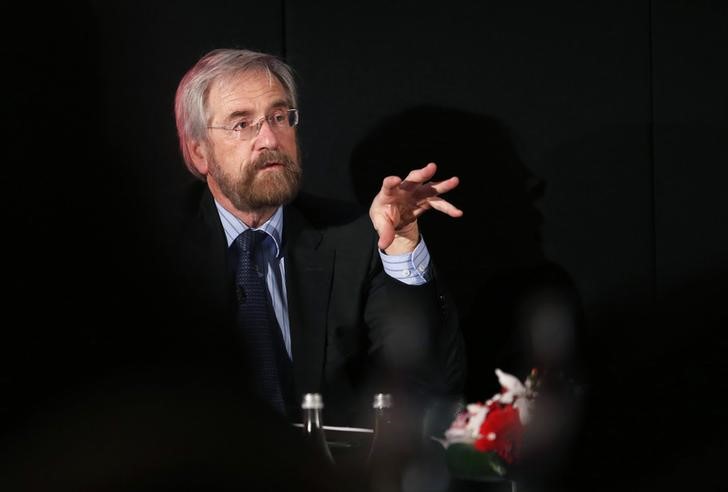(Bloomberg) -- Go inside the global economy with Stephanie Flanders in her new podcast, Stephanomics. Subscribe via Pocket Cast or iTunes.
The European Central Bank shouldn’t be blamed for reacting to the economic consequences of the global trade dispute, former chief economist Peter Praet said, rebutting U.S. criticism that its policies are unfair.
“You have a lot of uncertainties on the external side, so you should not put the blame on the ECB’s policy when the international environment has deteriorated very much, also related to uncertainties related to trade,” Praet said in an interview with Bloomberg TV’s Matt Miller in Sintra, Portugal. “I think it would be very good to stabilize the international business environment.”
Policy makers are contending with persistently weak inflation and a slowdown of growth, with Germany, Europe’s largest economy, particularly affected by rising global protectionism. Speaking at the ECB’s annual forum earlier on Tuesday, President Mario Draghi raised the prospect of further stimulus if the region’s outlook doesn’t improve and specifically cited interest-rate reductions as an option.
The news caused bond yields across Europe to fall, and U.S. President Donald Trump tweeted that ECB action that weakens the euro is unfair.
“I think we should not exaggerate the impact of the communication of today on the exchange rate,” Praet said. “The exchange-rate issues are really second-order sort of issues.”
